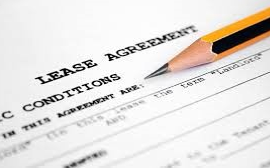Commercial Property Rent Reviews
 The majority of business owners lease the premises from which their business operates. A lease agreement is a binding legal document, so it is important as a tenant to understand all the responsibilities and legalities that make up your agreement.
The majority of business owners lease the premises from which their business operates. A lease agreement is a binding legal document, so it is important as a tenant to understand all the responsibilities and legalities that make up your agreement.
In this series of blogs we look at some of the commonly queried situations that can arise during the lease of an office or retail space, or what can arise should you be considering entering a new property lease.
In our last blog we talked about what happens if you want to upgrade your fit-out and who foots the bill. This time, we are talking Commercial Property rent reviews – how often and how much? Next issue, we’ll look at the expectations (and differences) around repairs, maintenance and redevelopment.
Rent reviews – when and how much
Here are a few things to consider when your next rent review is looming:
Is the timing of the review correct?
If your landlord has advised that it’s time for a rent review, double check your lease agreement. It should stipulate exactly when reviews are to take place and it always pays to double check.
Was the notice of review served correctly?
Your lease agreement will specify when reviews are to take place and how often. It should also specify how much notice is required prior to the review.
What type of review is it – a market or CPI rent review?
There are two main types of review – one is based on the current market whilst the other is based on the consumer price index. A CPI review is often preferred by landlords as it provides certainty as to annual rent increase and reduces the cost as a valuation is not required. The two different types of reviews can produce very different results.
Is there a ratchet clause in your lease agreement?
A ratchet clause specifies that the new rent cannot be less than the rent for the previous period. There are also variations of a standard ratchet clause that specify a particular amount instead that the new rent cannot fall below.Most importantly – If you disagree with the proposed rent following a review, you must act promptly. Many leases, including the most commonly used Auckland District Law Society (ADLS) deed of lease, contains strict time periods for disputes. If you don’t respond within the specified timeframe or follow the correct method, you risk being stuck with the new rent until the next review.
For any issues or queries regarding your lease agreement, be sure to get the right legal advice.
Find out more about leasing Commercial Property.
Share this:
